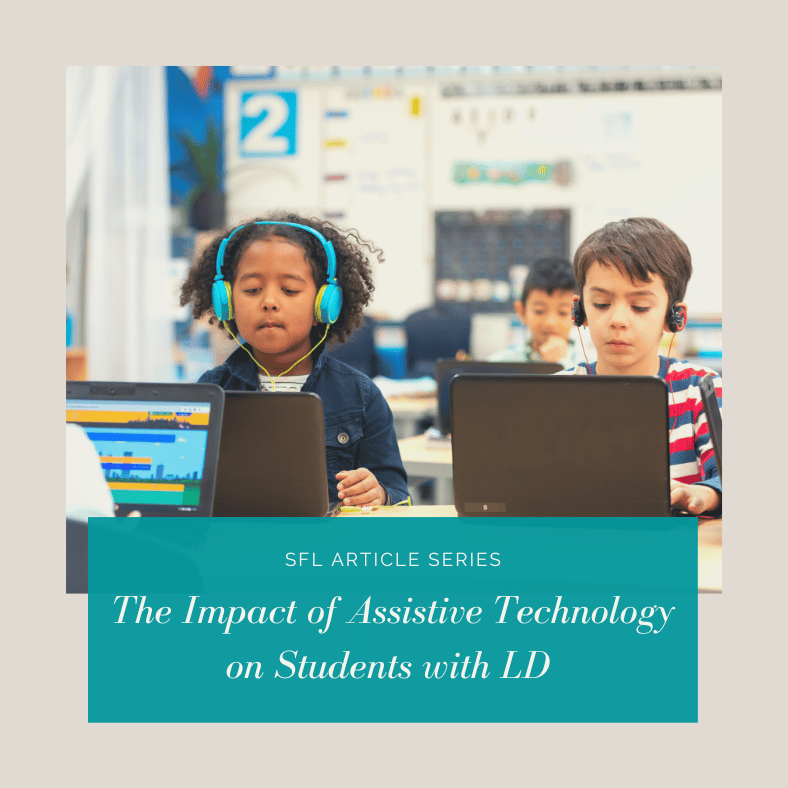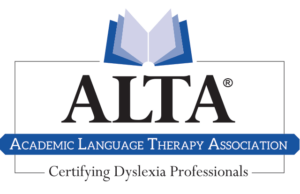No products in the cart.

Assistive Technology and Learning Disabilities
Inclusivity is a guiding principle in education. It ensures every student can reach their own full potential, regardless of ability. For students with learning disabilities, this means providing the necessary tools and support to bridge the gap between their unique challenges and educational goals. Assistive technology (AT) has revolutionized how students with disabilities access and engage with educational content. This technology empowers students and can have a transformative impact on their education.
What is Assistive Technology
Learning disabilities are neurological differences that affect a person’s ability to receive, process, store, respond to, or communicate information effectively. These disabilities include dyslexia, attention deficit hyperactivity disorder (ADHD), and dyscalculia, to name a few. Each presents unique challenges for students in their pursuit of academic success. Assistive technology refers to a broad range of tools and devices designed to support individuals with disabilities in many aspects of their lives, including education. AT offers customized solutions to mitigate many students’ challenges throughout the learning process.
Examples of Assistive Technology
For instance, text-to-speech software can read aloud textbooks or articles, making the content understandable for those with decoding difficulties. A student with dyslexia struggling to keep up with his or her reading assignments can use text-to-speech software to boost comprehension and enjoyment of the text. Tools such as word prediction and grammar-checking software can also help students with dyslexia and dysgraphia produce quality, error-free written work. Learn more about types of assistive technology appropriate for students with dyslexia.
Speech-generating devices enable students with communication disorders to express themselves, interact with peers, and actively participate in classroom discussions. For students with attention and executive functioning challenges, assistive technology tools like digital calendars, task managers, and note-taking apps can help them stay organized and on top of assignments and deadlines. For instance, students with ADHD can benefit from digital organizers and task managers, gaining the confidence to manage their workload independently and excel academically.
Students with dyscalculia benefit from math-specific assistive technology like digital calculators and equation-solving software, enabling them to grasp mathematical concepts more effectively. These students can gain confidence and understanding with the help of math-specific assistive technology. Assistive technologies can also provide personalized support, catering to each student’s unique needs and learning style. This help is often achieved through adaptive software that adjusts the pace and complexity of materials based on individual progress.
AT’s Impact
The impact of AT on students with learning disabilities can be transformative. Along with quality instruction, AT empowers students to reach their academic potential. It has revolutionized education for students with disabilities, making classwork more accessible. Many schools have taken a step towards a more inclusive and equitable educational experience by encouraging the use of assistive technology in the classroom.
If you believe your child would benefit from any form of assistive technology, find out who the AT specialist is in your local school district and request an assistive technology evaluation. If specific technologies are identified as a good fit for your child, they should be documented on the IEP to guarantee your child has regular access to them, as well as any follow-up training or consulting to ensure that they are appropriately used in the classroom. Strategies for Learning has many specialists who can help you navigate educational evaluations and individualized education programs.
Written by Stephanie Broytman, M.A. Learning Disabilities
Related Articles
Looking for Academic Support and other Educational Services?
You can schedule a free initial consultation to learn more about our services. We will listen to your concerns, answer any questions, learn about the student’s needs, and help guide you through our new student intake process.






